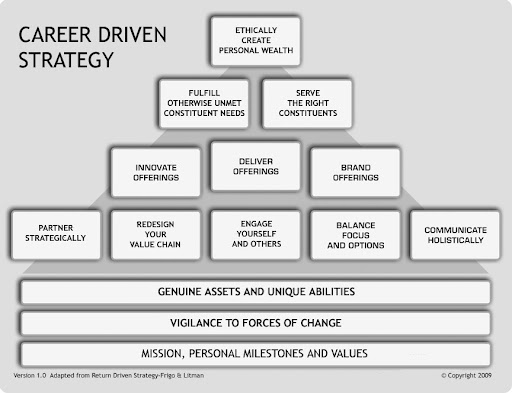Your success doesn’t have to be accompanied by loneliness. Here’s what you can do to change that!
|
|
| Continue reading below to know more! Your success doesn’t have to be accompanied by loneliness. Here’s what you can do to change that! Financial independence, ownership over one’s time, and prestigious titles are often considered as markers of professional and personal success. That’s why high-performing individuals spend so much time and dedication in climbing the professional ladder in the hopes of attaining not only a better career but also a better life. However, it’s often been observed that the climb to the top is often accompanied by loneliness and isolation. According to the Pew Research Center, 16% of adults say they feel lonely or isolated all or most of the time. Even though the same research found that 58% of adults feel more optimistic about their life, that doesn’t change the fact that there are those who feel lonely or isolated. Those experiencing loneliness are less likely to work efficiently and stay emotionally present, leading to lower job satisfaction and higher chances of experiencing mental and physical health issues. Simply said, feelings of loneliness and isolation can and will hurt a person’s ability to become the best version of himself or herself.
That’s why for the past few years, there’s been a massive explosion in the number of books, research, and advice on how to reduce or overcome loneliness. Most of the time, authors of these well-meaning materials have advised their audience to connect more with others. … and even though this is sound advice, many still continue to grapple with loneliness, even though everyone is more connected than ever. So, what can be done about this? The answer lies in changing the way loneliness is viewed. According to psychologist Alexander Danvers, it’s not the quantity of interactions and connections that drive feelings of loneliness; it’s the quality. Said another way, loneliness doesn’t result from lack of interactions but a perceived lack of feeling valued by others. Psychologist Gordon Flett defines this feeling of being unseen, unheard, or unvalued by others as anti-mattering. The opposite of this feeling is mattering, where you feel significant to those around you because you feel valued and know that you do add value. That said, how can you combat loneliness, or rather, reduce anti-mattering in your life? Here’s what Zach Mercurio , a researcher who specializes in this topic, suggests:
— While loneliness is a much more pervasive feeling these days, especially when you’re aiming to live your best life professionally and personally, this doesn’t mean that you have to succumb to this feeling. With the insights we shared above, you can change how you view loneliness. As we’ve learned, loneliness and isolation aren’t feelings that can be erased by interacting more with others; reducing the impact of those emotions in your life must also be done by making the people in your life feel that they matter. By doing so, you’re much more likely to receive the same treatment, ending up with you also feeling valued, remembered, and seen. EXCITING NEWS AHEAD The world of work has shifted, and there’s no going back. The barriers to entry have never been lower for talented professionals to work independently, and today’s massive external workforce is hardly a pandemic-produced fad. Business owners can only survive in the new work landscape by partnering with this deep talent pool. With decades of experience in both small-business entrepreneurship and executive management at PwC, I truly believe that the future of work is independent. With that, I’m happy to share with you that my book, co-authored with Walter Scott Lamb, is now available on Amazon! Free Birds Revolution: The Future of Work & The Independent Mind This new bestseller is an essential read for both independent professionals and corporate executives. Here, we provide educational and practical guides to unpack the ever-growing workforce and offer you crucial ways to become a client of choice. Click on the link above to order your copy. Let this bestselling book help you future-proof your career and organization in the new world of work. For a daily version of this newsletter, please subscribe here. |

Miles Everson
CEO of MBO Partners and former Global Advisory and Consulting CEO at PwC, Everson has worked with many of the world's largest and most prominent organizations, specializing in executive management. He helps companies balance growth, reduce risk, maximize return, and excel in strategic business priorities.
He is a sought-after public speaker and contributor and has been a case study for success from Harvard Business School.
Everson is a Certified Public Accountant, a member of the American Institute of Certified Public Accountants and Minnesota Society of Certified Public Accountants. He graduated from St. Cloud State University with a B.S. in Accounting.



